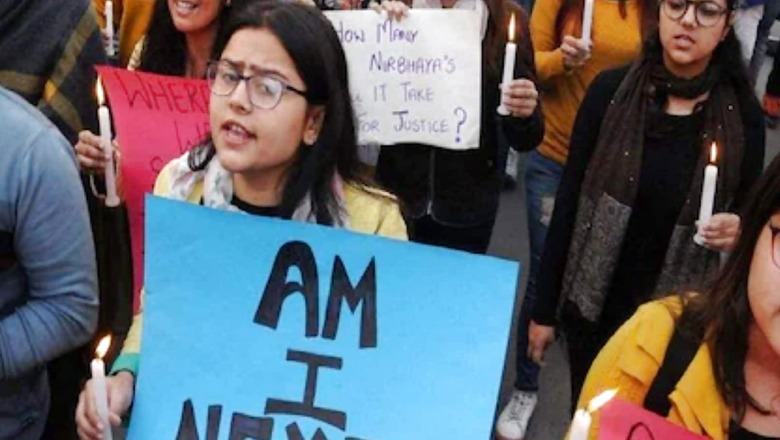
views
Sexual intercourse between a husband and wife, even if without the wife’s consent is not rape, the Chhattisgarh High Court observed on Thursday, acquitting a man of marital rape. This is not the first such observation by a court in India; earlier this month, Mumbai Additional Sessions judge Sanjashree J Gharat had observed that a woman’s complaint of her husband ‘raping her’ did not stand up to legal scrutiny.
According to the World Health Organisation, Sexual violence is defined as: “any sexual act, attempt to obtain a sexual act, unwanted sexual comments or advances, or acts to traffic, or otherwise directed, against a person’s sexuality using coercion, by any person regardless of their relationship to the victim, in any setting, including but not limited to home and work.” However, marital rape is not recognised in many countries. In India, under section 375 of the Indian Penal Code (IPC), forced intercourse in marriages is considered to be a crime only if the wife is below the age of 18.
ALSO READ | Sexual Intercourse Between Husband & Wife Not Rape, Even if by Force: Chhattisgarh HC
TMC MP Mahua Moitra, commenting on the Chhattisgarh High Court observation, said “Neanderthals in India’s judiciary need to wake up. Hope this is appealed in SC asap.”
Countries Where Marital Rape is Not Criminalised
About 32 countries in the world have not yet criminalised marital rape, most being developing nations. These include:
- Pakistan
- Bangladesh
- China
- Haiti
- Laos
- Mali
- Myanmar
- Senegal
- Tajikistan
- Afghanistan
- Botswana
- Democratic Republic of Congo
- Iran
- Lebanon
- Malaysia
- Nigeria
- Singapore
- Uganda
- Algeria
- Brunei Darussalam
- Egypt
- Cote dIvoire
- Libya
- Mongolia
- Oman
- South Sudan
- Yemen
- Bahrain
- Central African Republic
- Ethiopia
- Kuwait
Constitution and Marital Rape
Lawyers and experts argue that the exception created by Section 375 is violative of the fundamental rights of equality, dignity and privacy of women. According to Article 14 of the Indian Constitution, every citizen is entitled to equal rights protection. In the Supreme Court’s ruling in State of West Bengal v. Anwar Ali Sarkar, under Article 14, any classification must be based on intelligible differentia, and such differentia must have a rational relationship with the aim sought to be achieved.
A report in the Leaflet argues that Section 375 violates the rights of the married women, who are victims of rape, to be treated equally with their husbands and with other victims of the same offence, and that the exception that excludes married women from getting protection under the section, is not based on intelligible differentia as it solely relies on the basis of her marital status.
Read all the Latest News, Breaking News and Assembly Elections Live Updates here.
















Comments
0 comment